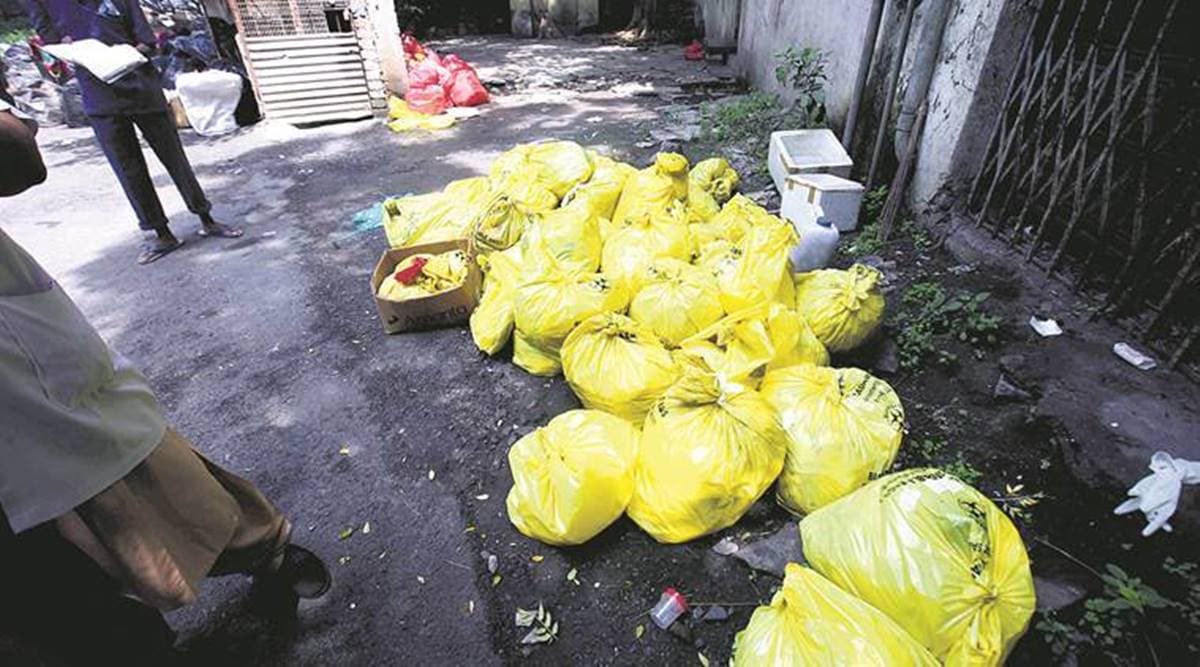 The study compared the biomedical waste generated before the pandemic and during the lockdown, between March 21 and June 1. (Representational)
The study compared the biomedical waste generated before the pandemic and during the lockdown, between March 21 and June 1. (Representational)Biomedical waste generated across the state increased by 45 per cent till end-May as compared to the pre-Covid-19 period, a pandemic impact study by the Maharashtra Pollution Control Board (MPCB) has revealed. The study compared the biomedical waste generated before the pandemic and during the lockdown, between March 21 and June 1.
The study titled, ‘Impact Evaluation of Covid-19 Pandemic on Environmental Attributes’, was commissioned by the MPCB and released on July 31. The data was collected from 60,410 healthcare establishments across the state.
On average, 62.4 tonnes per day biomedical waste was generated last year which increased to 90.6 tonnes per day by end-May this year, the study found. According to the MPCB, there are 31 biomedical waste treatment and disposal facilities in the state, of which 29 are incinerators, while the remaining are burial facilities.
The study also recorded a slight drop in the daily solid waste generated by the urban local bodies across the state. Of the total waste generated during the lockdown, about 80 per cent to 90 per cent is expected to be biodegradable, especially till April, with zero construction and commercial waste.
“It can be assumed that reduction (in waste) is observed mostly due to closure of public places and population reduction due to migrants, who left the state during this time,” the report read.
The study also found an increase in packaging related waste in May or the third phase of the lockdown. “Lockdown phase 3 allowed online delivery and the services resumed at a much higher pace than ever, thereby increasing the packaging related solid waste,” the report stated.